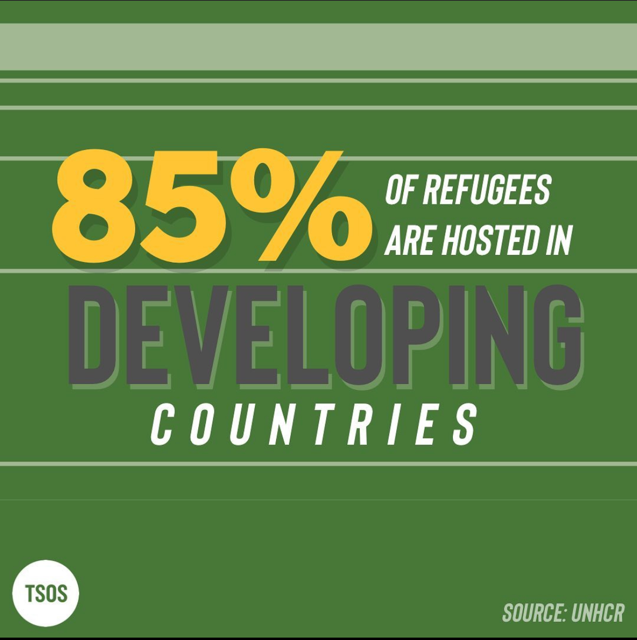
Some friends of mine were resettled in the United States a few weeks ago. They’re a South Sudanese family who has lived in Cairo, Egypt, for decades and they waited for their turn to be resettled for many years.
When I first met this family in early 2019, two years into the drastically reduced refugee resettlement caps in the US, they told me that they were supposed to have already been resettled, but because they were going to the US, everything was on hold. Those caps are only just being raised now, plus the pandemic slowed resettlement worldwide, which means they finally moved in late 2021, over three years later than they should have. Like everyone else in line for resettlement in the US, all they could do was wait.
A younger daughter was just turning 7 in 2019 and a son was in 8th grade. An older daughter was turning 10. Even though I’m forever grateful that resettlement has happened, I also know that they lost three years of school in schools in the US. Their transition, which is always difficult for resettled refugees, was also delayed for three years and they’re dealing with it now instead of being past it. I imagine what their lives might have been like now if they had been in the US since 2018. There are so many missed opportunities.
Instead, they attended a refugee learning center here in Cairo. It’s one of the better staffed and funded learning centers here since it has international support, but it’s also constantly overcrowded and it can’t possibly admit all the children who want to go there. The administration tries to make up for nutritional deficiencies in the children whenever it can, they run a volunteer reading program, and it gets lots of donations around Christmas, but it’s nothing like the education the children will receive in the US. And there was no school at all for about 8 months during corona shutdowns, of course.
We’ve had a few other friends get resettled since we’ve been here, mostly to Europe and before corona. The pandemic’s impact on refugee resettlement and refugee life in general hasn’t gotten as much attention as it should, but that is only part of the story for this family. There’s no getting past the fact that US government policy starting in 2017 significantly impacted the lives of tens of thousands of refugees, including many children. It’s important that we continue to try to remedy that now and also not make the same mistakes in the future.
Official Statement on the Detention of Refugees and Ongoing Community Violence
With another death in Minnesota and continued violence toward individuals and groups standing up for their communities, we acknowledge the profound fear and uncertainty people are feeling--not just locally, but across the country.
On top of this, there are reports that refugees invited and admitted to our country through the U.S. Refugee Admission Program are now being detained, meaning that our new friends and neighbors feel that fear most acutely.
Refugees have already fled violence and persecution once. They came here legally, seeking safety. In moments like these, we reaffirm our commitment to building communities where refugees and immigrants can live without fear. Where they can go to work, send their children to school, and build lives of dignity and belonging.
We call for due process, accountability, and humanity in all immigration enforcement operations. We call upon our leaders to demand the demilitarization of our neighborhoods and cities. And we call on all of us to continue the work of welcoming and protecting those who have been forcibly displaced from their homes.